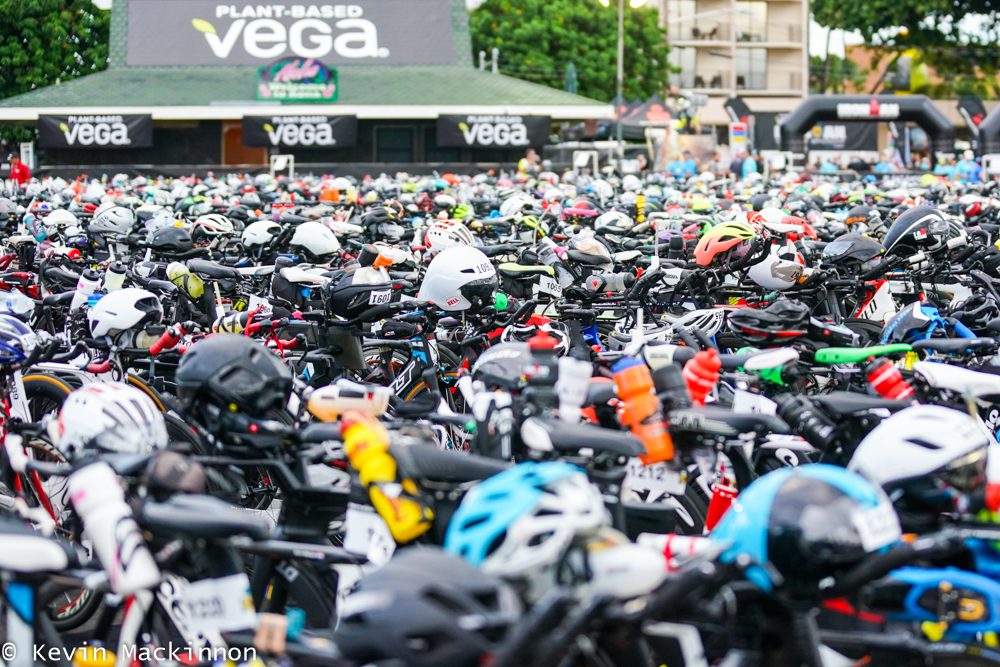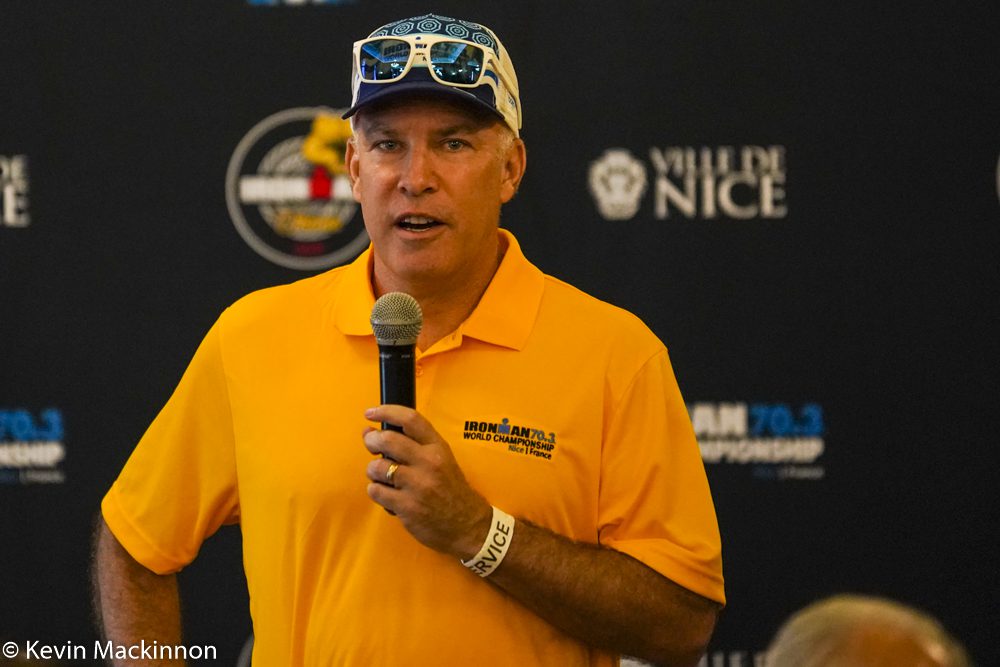Will the Ironman World Championship take place next February?
With the qualifying schedule disrupted by the coronavirus COVID-19 pandemic, Ironman is weighing its options for the 2020 world championships in Hawaii and New Zealand.

Ironman CEO Andrew Messick held a press conference today on Ironman’s plans for a resumption of racing around the world once regions start allowing it, and outlined the challenges the company faces in putting on its world championship events later this year.

While Ironman officials “haven’t made a definitive decision that we’re willing to talk about” with regards to the 2020 Ironman World Championship in Hawaii and the Ironman 70.3 World Championship in Taupo, New Zealand later this year, according to CEO Andrew Messick there are many reasons for moving the dates for both races.
Related: The Kona Conundrum
“Qualifying for Kona and the 70.3 worlds is at a complete standstill,” Messick said in a video conference today. “We have qualified 3,000 of the 6,000 athletes for Taupo, and 1,000 of the 2,500 athletes for Kona. The qualifying challenges become more acute every passing day that we don’t have a qualifying race.”

“Another reason for moving Kona,” Messick continued, “would be to allow for a pro qualifying cycle. A repositioned world championship solves a lot of problems.”
Messick acknowledged that hosting the event in February would alleviate many of the qualifying issues as more and more races are postponed until the fall. Age groupers and pros alike would be able to qualify for the “2020” Ironman world championship in the fall, with the race actually taking place in 2021. That would be followed by another race in October, 2021. This would be a repeat of 1982, the year the race moved from Honolulu to the Big Island, when two events were held, one in February and one in October.
Of course the logistics for changing the date of the event would be huge – February is a busy tourist time for the Big Island, which means accommodation would be a big challenge. Athletes from the northern hemisphere would face a tougher time training for the event, too, as they would be having to do the bulk of their training in the heart of winter.
The real challenge will come, though, if many regions still don’t permit racing through the fall. In March and April Ironman rescheduled over 100 races. Messick says that the feedback they’ve been getting from athletes is that they “want to race if they can in 2020.” Messick also envisions that “races, for the next year or so, are going to be a lot more local.”
Messick also acknowledged that the last few months have been a huge challenge for Ironman.
“I keep telling our staff that we’re just trying to make it through the night, but no one knows how long the night is going to be.”
Stay tuned for more from today’s press conference.
